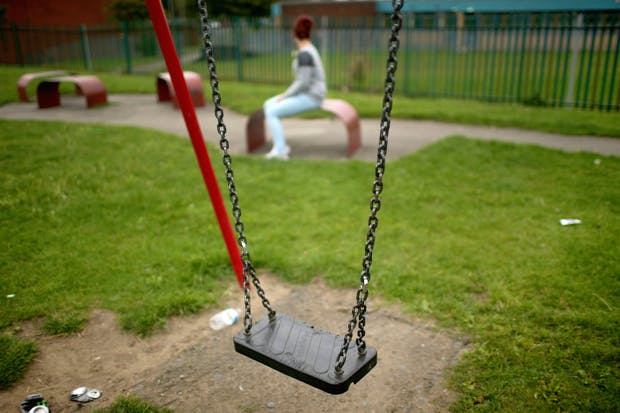Police paying a convicted child rapist to be a covert informant will always turn stomachs. But the real stomach-churner is that the grooming and exploitation of vulnerable women and girls is continuing. Even so, the £10,000 payment made to a sex offender who helped bring the Newcastle grooming gang to justice has sparked a backlash. The chief constable of Northumbria, who authorised the payment, has conceded that his decision is widely seen as ‘morally repugnant’. Yet the criticism aimed at the police should not mask the importance of paid informants.
It’s clear to me that information and intelligence is the lifeblood of any investigation. This is particularly true in cases involving child sexual exploitation, where offenders operate in closed, tight networks. Until now, the predominantly Pakistani grooming gangs that have been exposed across the country – from Rotherham and Rochdale, to Telford and Oxford – and now Newcastle and Gateshead, represent just such a sort of group. They exist in a sociocultural environment distant from our own, where ‘white girls’ are viewed as worthless trash. It’s a reality fuelling difficult, but very necessary, conversations about religion and culture; for police officers intent on tackling it and keeping people safe, actions speak far louder than words.
So while those claiming that police should have used an undercover police officer rather than an informant are well-meaning, they are operationally naïve. The criminal network in Newcastle and Gateshead featured men from across Bangladeshi, Pakistani, Indian, Iraqi, Iranian and Turkish backgrounds. This poses real operational challenges. The police simply don’t have a box of suitably trained undercover officers with, to be blunt, the right cultural backgrounds to just slip into such a network.
Even if such officers were available, it still takes time to build trust and infiltrate these often close-knit offending networks. It’s a little more complex than The Sweeney – you can’t just hang out in the pub and ask where the next incident of grooming will take place. The fact that more than 278 vulnerable girls in some of the most deprived areas of Newcastle and Gateshead were being groomed, raped or otherwise sexually exploited should not be forgotten. Nor should the fact that we really are talking about some of the most vulnerable: children struggling to grow up in care homes and children with learning disabilities and other special needs.
Police had to make a decision and – while unpleasant – if paying a convicted child rapist £10,000 gives you the information you need to bring a swift conclusion to another criminal enterprise intent on the sexual abuse and rape of vulnerable children, then it is surely a price worth paying.
The failure of the state, in totality, to protect many thousands of girls in recent decades – in towns across the country – should be a source of immense national shame. Operation Shelter and Operation Sanctuary doesn’t represent anything like the last exposé of a form of criminality that preys on children born of social breakdown, state failings and poverty. We know, from past investigations, that authorities and professionals have struggled, for fear of being branded ‘racist’, to accept or even investigate the devastating complaints from young girls who, it seems, were too often simply ignored or written off as troublemakers.
On this occasion, Northumbria Police have – like other forces – taken proactive steps to confront the problem and tackle the perpetrators. So while some will inevitably find fault with their use of a paid informant, it’s good to see action being taken on something that, less than a decade ago, was all too readily being swept under the carpet.
Nobody wants to see criminals benefit from their position or the public purse, but there are times when needs must. From my own experience, keeping some of the youngest and most vulnerable in the poorest parts of Britain safe isn’t always going to be easy and will involve hard decisions. It’s a shame then that the greater outrage appears to have been reserved for the efforts of the police, rather than the perpetrators.
Rory Geoghegan is Head of Criminal Justice at the Centre for Social Justice. He was previously a Metropolitan Police officer for five years






Comments